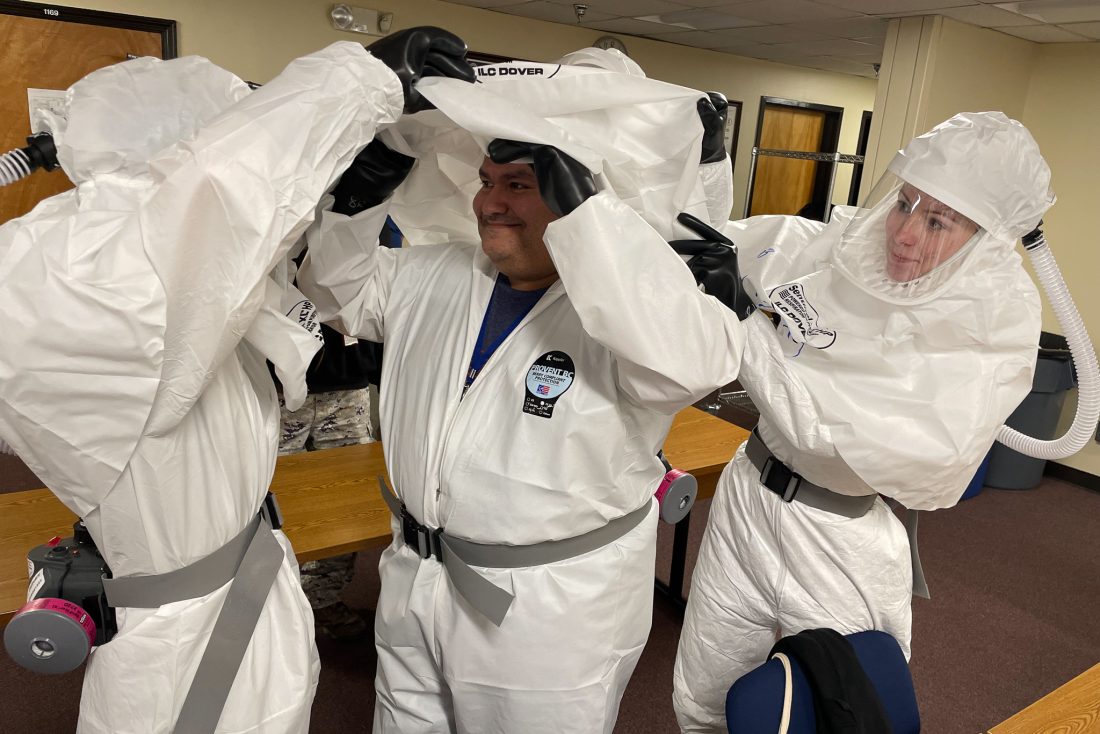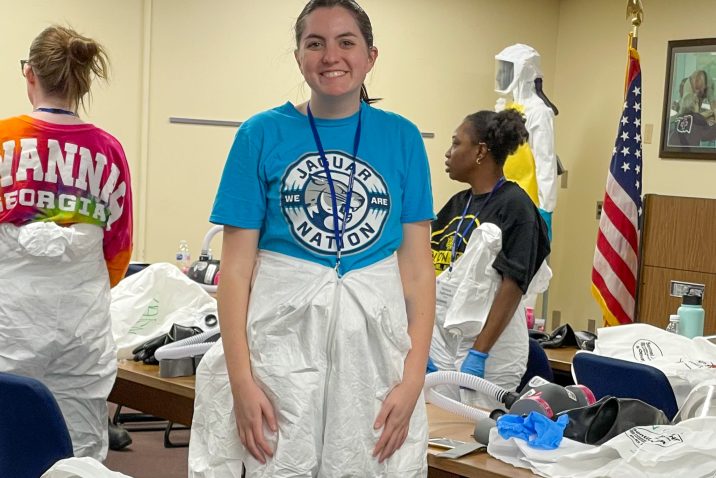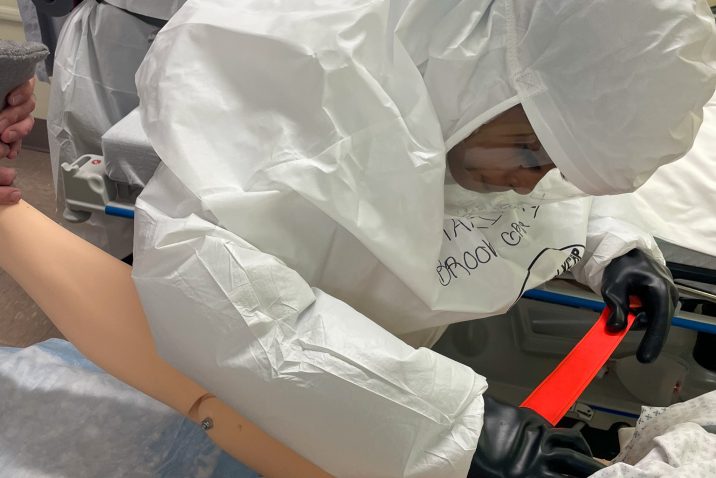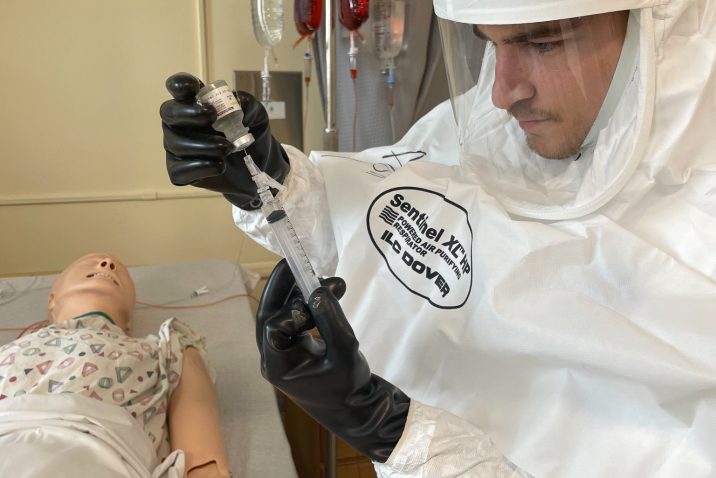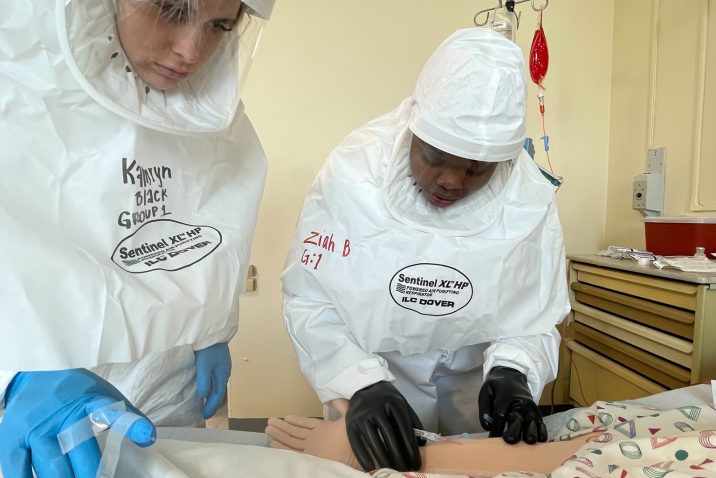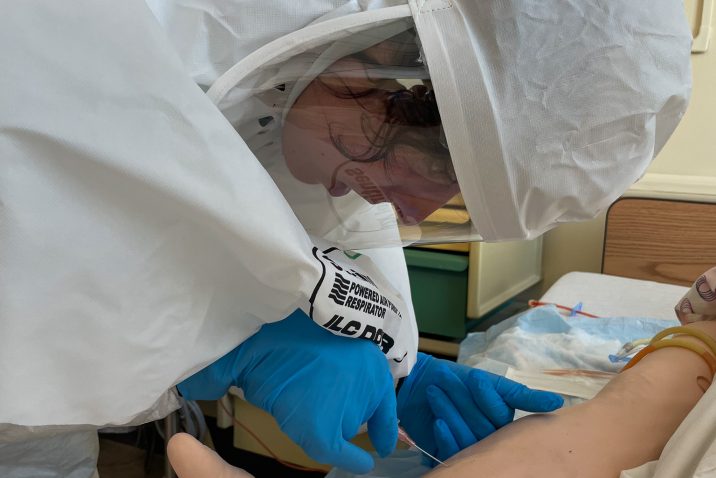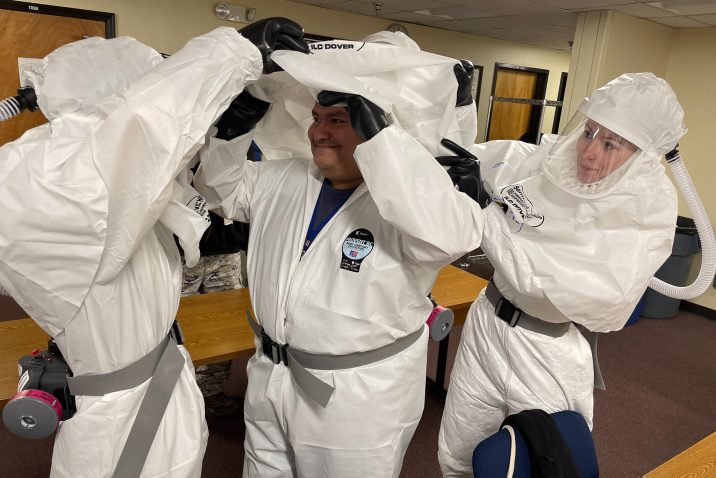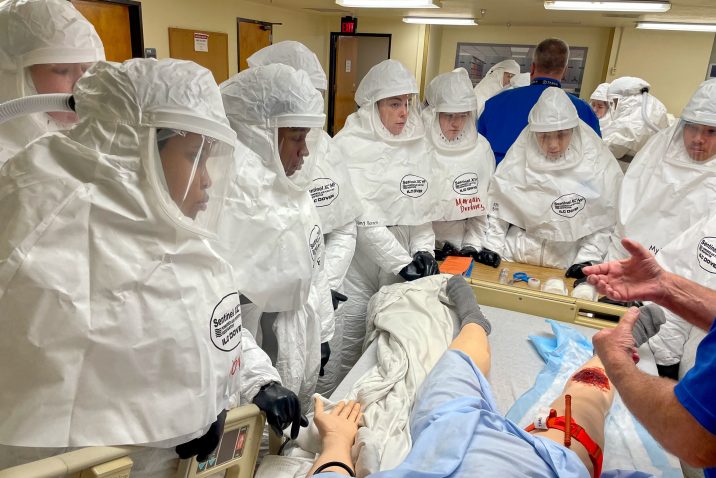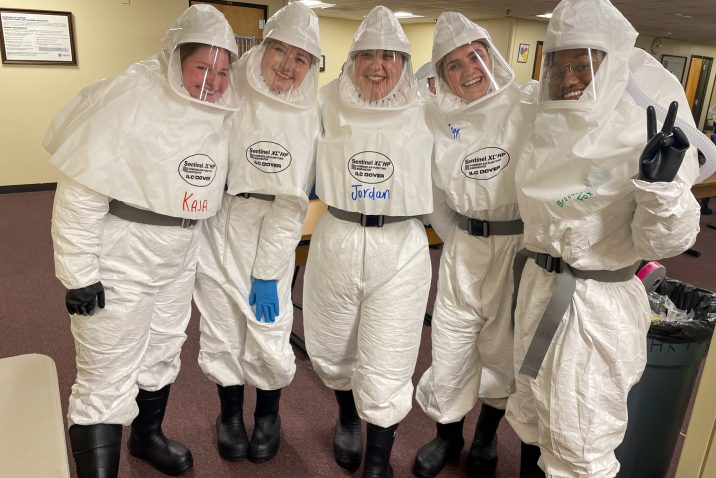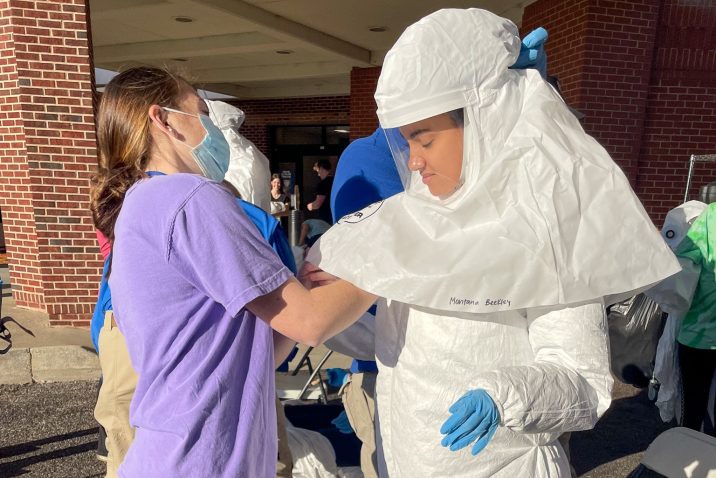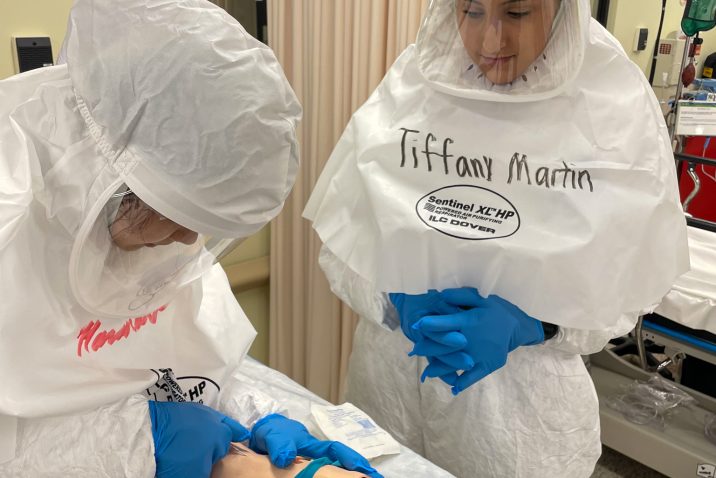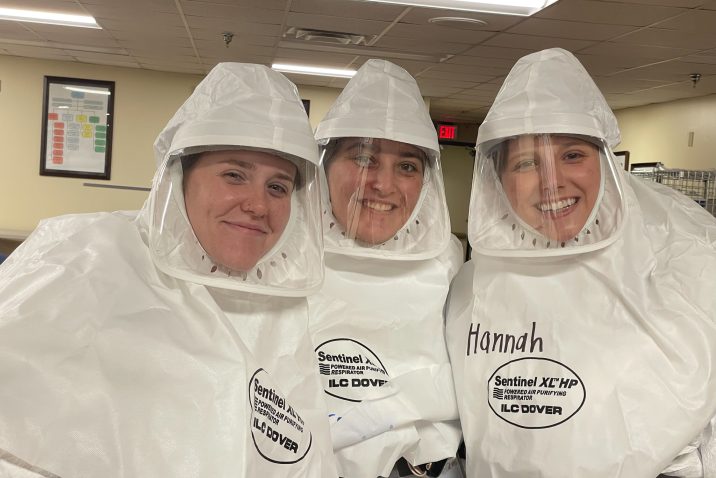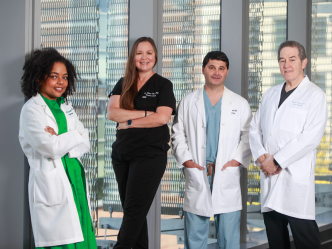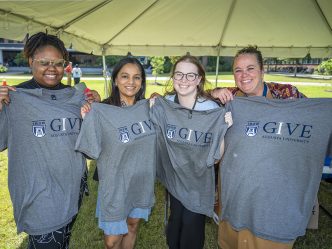The last time the College of Nursing’s Bachelor of Science in Nursing students participated in Federal Emergency Management Agency training was right before the COVID-19 pandemic began — but this spring, they finally got the opportunity again.
FEMA offers mass casualty and disaster response training at the Center for Domestic Preparedness (CDP) in Anniston, Alabama, and since 2014, Dr. Carol Hunter, assistant professor of nursing, has coordinated with FEMA to provide this invaluable training for BSN students.
Training is offered to all senior BSN students enrolled the community and public health nursing course. Students train for two days at the Noble Training Facility — the only Level III, mass-casualty trauma training hospital facility of its kind in the United States. They complete an emergency medical response awareness course for chemical, biological, radiological, nuclear and explosive (CBRNE) incidents as well as a course on health care emergency response operations for CBRNE incidents.
Students learn about patient triage, patient assessment, signs and symptoms of exposure, patient decontamination and the use of Level C personal protective equipment. They learn how to properly don PPE, practice a variety of nursing skills while wearing PPE and safely doff PPE at the completion of the training exercises.
The training offered at CDP is more relevant today than ever. These future nurses face the very real possibility they will encounter CBRNE elements in their professional careers. Incidents such as the Boston marathon bombing, building collapses, chlorine gas release from the Graniteville train derailment, Ebola and COVID-19 all highlight the need for this training.
BSN senior Rachel Thompson found the training to be an invaluable experience.
“I got the opportunity to not only learn about an area of nursing that I haven’t had much exposure to, but also one I am personally interested in,” she said.
With the potential threat of biological, chemical or nuclear warfare, it is really a question of when — and not if — an incident will occur. But when events occur, CON graduates will be prepared.
“With the recent mass casualty events, working through the simulation wearing hazmat suits gave me a good understanding of response and triage,” Thompson said. “It was one of the coolest things I’ve ever done. I feel like I now will be a great asset to any emergency care team.”
As they enter the workforce, CON graduates will stand out among their peers because of these exercises. This FEMA training, with a curriculum designed specifically for entry-level and pre-entry-level nurses, is offered to a limited number of nursing programs throughout the U.S. Currently, only 10 nursing programs in the country participate.
A former student, Brooke Hoffmann, BSN ’19 reached out to Hunter after the onset of the pandemic to thank her for coordinating this training opportunity.
“Thank you for pushing for us to go to FEMA training. That training is helping me not only protect myself but my patients,” she said to Hunter.
Hoffman works at a health care facility in Denver, Colorado and was designated a leader in her unit. She credits the education and FEMA training she received at Augusta University with making her stand out amongst her peers.
Hunter states this training is just one example of how Augusta University’s College of Nursing students are prepared to make a difference once they begin their careers.
 Augusta University
Augusta University
